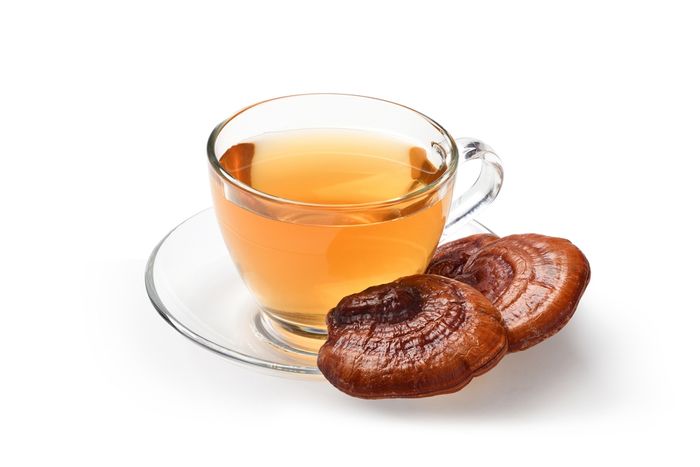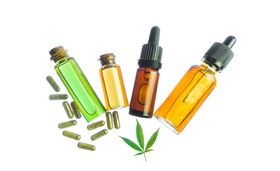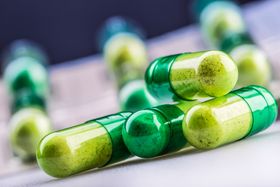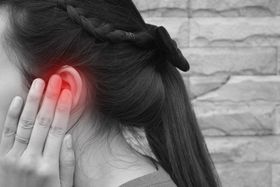Reishi Mushroom Tea: Benefits, Disadvantages, and How to Brew It
Updated April 14, 2023.

Reishi mushroom tea has been utilised to treat many ailments for thousands of years. The benefits promised by Reishi in its many forms are extensive, but what exactly are they? And, does consuming Reishi in the form of tea have any additional benefits?
» Find the perfect mushroom blend for your condition - take free quiz
Benefits of Reishi and Other Functional Mushrooms
Almost all functional mushroom species have a similar list of benefits, though some may vary slightly in their degree or manifestation across the different species. As illustrated in our Chaga vs Reishi post, both have many similar benefits, but Reishi appears to be better for alleviating stress and other mood-related disorders, while Chaga seems to be a more potent anti-inflammatory.
Generally speaking, functional mushrooms usually offer the following benefits in varying degrees:
- Anti-inflammatory properties
- Antioxidant properties
- Immunomodulatory properties
- Some may possess anti-cancer or anti-tumour properties
- Relief from mood-related disorders like anxiety, depression, and insomnia
For a complete list of the potential Reishi benefits, read The Benefits and Side Effects of Reishi Mushrooms.
How to Consume Reishi Mushrooms
Unlike some other species of functional mushrooms, Reishi isn't really suitable to eat whole, even after cooking. Reishi mushrooms have a thick, woody, and fibrous texture that can be extremely off-putting. However, that's not the only reason that mushrooms should be cooked before they're eaten. Firstly, there is always an elevated risk of side effects when functional mushrooms are consumed raw. Secondly, mushrooms have a thick layer of chitin that our bodies can't digest, meaning that many of the beneficial nutrients are unavailable unless that chitinous layer is broken down by heat.
This is also why powdered extracts of Reishi are usually mixed into hot beverages or added to food during the cooking process. Additionally, tinctures and other extracts have the nutrients extracted through chemical processes that bypass the chitin, which is why they are usually superior to capsules that haven't been prepared correctly.
How to Prepare Reishi Mushroom Tea
Brewing a pot of Reishi mushroom tea is incredibly easy, and you can even use whole mushrooms (dried or fresh) or some dried powder (that is 100% water-soluble). If you have the soluble powder, you need only add a scoop to some brewed tea while it's hot and stir to help it dissolve. If you have the dried or fresh mushrooms, simply follow the steps below:
- Cut the mushrooms into thin slices (about 30g if using fresh mushrooms, 5g if using dried mushrooms)
- Add to pot with 4-5 cups of water (more or less depending on how concentrated you want it to be)
- Bring to boil and let simmer for 2 hours
- Add flavourings as needed (ginger, honey, or chamomile are great options)
- Strain Reishi mushroom pieces out
- Serve hot or cold
Reishi Tea vs Other Methods: Advantages and Disadvantages
Since there are so many ways to consume Reishi mushrooms, which one should you pick? Compare the advantages and disadvantages of Reishi tea over other methods below.
Advantages
- More pleasant taste than consuming the whole mushrooms
- Allows for customization (by adding unique flavours or other beneficial teas such as chamomile)
- A morning cup of tea is habit-forming, making it easier to get your daily dose of Reishi
Disadvantages
- More tedious to prepare and use than tinctures or capsules
- More difficult to control the dosage if using fresh or dried Reishi
- Not all the nutrients are water-soluble, meaning that some may be lost when the mushroom pieces are strained out
Combining Reishi Mushroom Tea With Other Therapeutic Compounds
To get the most out of your Reishi mushroom tea, consider mixing it with other therapeutic compounds, including other functional mushroom species. This idea formed the basis of Cannabotech's M2CBD formula, combining extracts of functional mushrooms with pharmaceutical-grade CBD and other therapeutic components like lemongrass and chamomile. All our products are designed with over a decade of prior research to cater to various needs including sleep issues, fatigue, pain, and more.
To browse our range of tinctures, tablets, sprays, and creams, visit our online store.
Should You Drink Reishi Mushroom Tea?
Reishi mushroom tea is one of the many different ways to consume the mushroom quickly and beneficially. However, there are better ways to get your daily Reishi dose.
The method with the best combination of bioavailability (the amount of a substance that your body can utilise), ease of use, and speed of effect are tinctures applied sublingually. That's not to say you can't do both. If Reishi mushroom tea is already a part of your daily routine, you don't have to stop in favour of tinctures—and you can even do both—but if you haven't yet added Reishi mushrooms to your life, then opting for tinctures and other extracts will yield more benefit in the long run.







